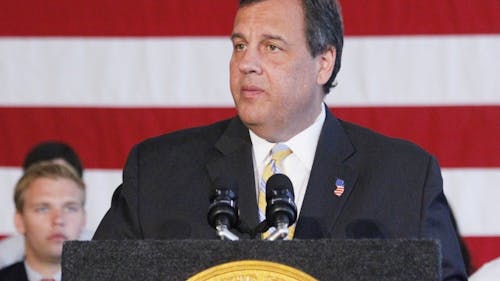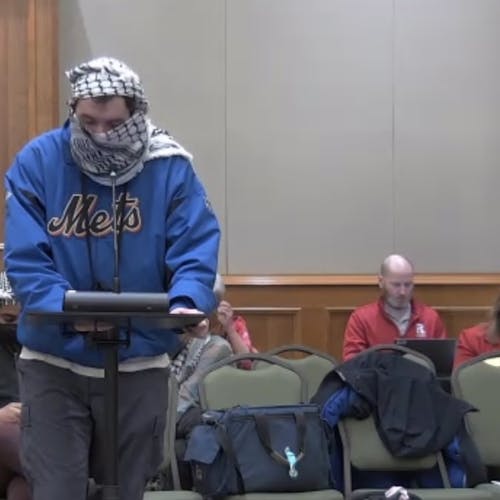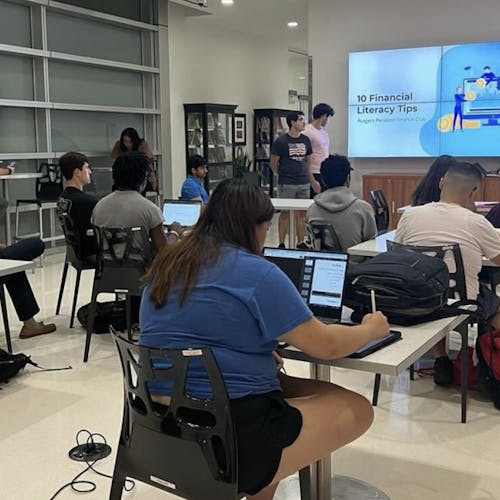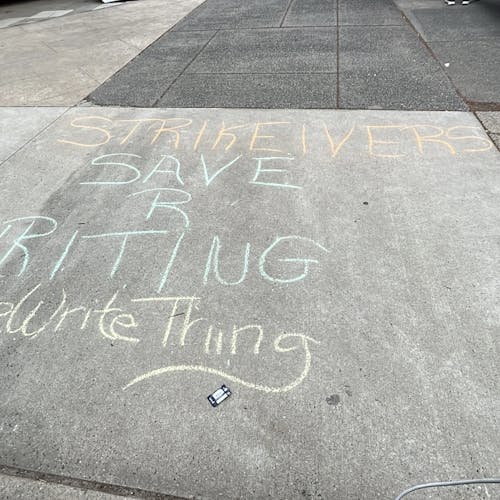Rutgers professor explains new developments in 'Bridgegate' trial

On Friday, two of Gov. Chris Christie’s former aides appealed the ruling of the high profile “Bridgegate" trial.
In the original case, which concluded earlier this week, Bridget Anne Kelly and Bill Baroni were convicted of nine charges of fraud and conspiracy in connection <g>to</g> the 2013 George Washington Bridge lane closures, according to Politico. A third aide, who pleaded guilty to all charges, will also be sentenced in February.
It is widely assumed that the lane closures near the George Washington Bridge toll booth were orchestrated by Christie’s administration as a form of political retribution, <g>said</g> Michael Rockland, a professor in the Department of American Studies, and author of the book “George Washington Bridge: Poetry in Steel”
“Those convicted in the recent trial were charged with engineering this mess to punish the Democratic mayor of Fort Lee who had refused to endorse Governor Christie, a Republican, for <g>re-election</g> that November,” he said.
Rockland said a key piece of evidence used by the trial’s prosecution was an email sent by Bridget Anne Kelly prior to the closures that read, “Time for some traffic problems in Ft. Lee.” Later, Kelly sent another email in response to concerns about children trapped on school buses, saying, “Is it mean that I’m smiling?”
The lane closures lasted for four days. During this time, it is recorded that vehicles had to wait an average of four hours to get onto the bridge, Rockland said.
“It was alleged that the first day of school was specifically picked for this interruption of service. Among the thousands of people affected that day were school buses full of children,” Rockland said. “Also waiting in line to cross the bridge were ambulances, fire <g>engines</g> and police cars.”
If Christie did not personally order the lane closures, Rockland said he believes it was widely understood within the Christie Administration that punishment would be meted out to any Democratic mayors in New Jersey who refused to endorse the candidate.
“We must remember that, at the time, Christie was largely regarded as a likely candidate for the Presidency in 2016 and he clearly wanted to demonstrate that he had bipartisan support in New Jersey,” Rockland said. “Ironically, like President Nixon in 1972, a landslide was already guaranteed because he completed his first term as a very popular governor.”
As of last week, a Rutgers-Eagleton poll showed 19 percent of New Jersey residents hold a favorable view of Chris Christie. This establishes him, statistically, as one of the least favorable Governors in New Jersey history.
The figure also represents a four-point decrease since the commencement of the Bridgegate trial in September, according to the press release.
“Clearly, the people of New Jersey do not believe the governor, but one must also consider factors besides Bridgegate. Christie was, during the first three years of his second term, out of state 75 percent of the time," Rockland said. "Most New Jerseyans believe the governor simply did not do his job because he was so intent on gaining his party’s nomination."
According to NJ Advance Media, the Bridgegate scandals stood as a barrier to Christie’s national prospects. Allegations of corruption were acknowledged throughout the presidential <g>primaries,</g> and were likely responsible for President-elect Donald trump’s decision to appoint Mike Pence as his running-mate over Christie.
“Once he was forced to drop out of the race, (Christie) was the first Republican of importance to endorse Donald Trump, and he clearly hoped to be on Trump’s ticket as vice president,” Rockland said. “He was also heading up Trump’s transitional team, but has now been demoted to a secondary position on that team.”
Earlier in the week, it seemed Christie was poised to take over as attorney general in Trump’s administration. Now, following the latest developments in the Bridgegate scandal, the Washington Post projects Rudy Giuliani will be selected for the position instead.
On Nov. 23, Christie will appear in court in Hackensack to answer charges brought by a citizen. Additionally, a state legislative committee, whose hearings were placed on hold during the federal investigations, are likely to reconvene now with Christie as their primary target, Rockland said.
When asked why Bridgegate is important to New Jersey citizens, Rockland pointed to the decreased state funding and rising tuition at Rutgers.
“Christie used $11.5 million of taxpayer funds just for a report from a law firm that had made major contributions to his campaign to prove that he was innocent.” Rockland said. “Students should care about Bridgegate if for no other reason than that is has affected their own pocketbooks.”
Kira Herzog is a School of Arts and Sciences sophomore majoring in political science and journalism and media studies. She is a correspondent for The Daily Targum. Follow her on Twitter @kiraherzog1 for more.



